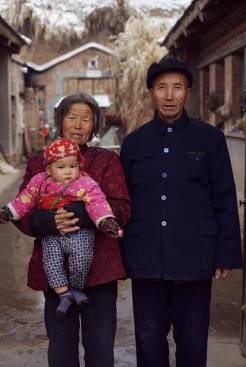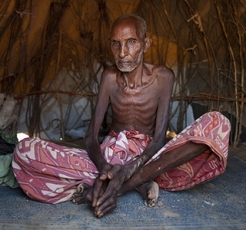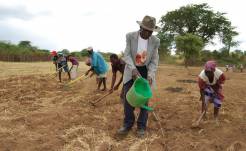By Anders Hylander

This week, the whole world is looking towards Rio de Janeiro, where the Rio+20 United Nations Conference on Sustainable Development is taking place. Important emerging challenges are being discussed, such as climate change and natural disasters, migration and displacement, food, water security and health.
However, one issue that has major implications on achieving the future we want is missing – that of global ageing.
The world is growing old
We are living through an historic demographic transformation with the world growing older rapidly. There are already more people aged over 60 than under five. By 2050, 22% of the world’s population will be over 60.
Global ageing is an important concern for developing countries. China, for example, is facing an ageing “time bomb”. By 2050, there will be 480 million older people in China, while the younger population will decrease in numbers.
In Africa, the percentage of the population over 60 is expected to grow from 7% today to an overwhelming 30% by 2100.
Older people’s vulnerability to today’s challenges
 Climate change, environmental degradation and conflicts increase the likelihood of emergency situations. Older people can be disproportionately affected by these crises due to certain vulnerabilities, such as reduced mobility, health problems and forced displacement.
Climate change, environmental degradation and conflicts increase the likelihood of emergency situations. Older people can be disproportionately affected by these crises due to certain vulnerabilities, such as reduced mobility, health problems and forced displacement.
Emergencies
As highlighted by our recent study on displacement and older people, older people form a significant proportion of internally displaced persons and refugee groups.
A lack of planning combined with aid agencies’ limited awareness of older people’s specific needs, means they are often left out of emergency responses. A recent HelpAge study in partnership with Handicap International highlighted that less than 1% of humanitarian aid targets older people and those with disabilities.
Food security
As a result of climate change, older people’s food security is at risk. Water shortages and insufficient support to older people for water management affect their ability to produce food for themselves and their families. Increasing droughts mean that farming is difficult and hunger is on the rise.
Health
Finally, despite significant improvements in global health in the last century, older people’s susceptibility to infectious disease and non-communicable diseases (NCDs) continue to impact their health as well as their economic and emotional wellbeing. 60% of all deaths in the world are caused by NCDs, and older people are particularly at risk.
Added to this, an increasing number of older people are living with HIV and AIDS. Their declining health reduces their ability to earn a living to support themselves and their families.
Recognising the role of older people
 Older people make huge contributions as farmers and caregivers. They have knowledge and experience of farming techniques and weather patterns. This can increase production, reduce waste and help mitigate the impacts of a changing, less predictable climate.
Older people make huge contributions as farmers and caregivers. They have knowledge and experience of farming techniques and weather patterns. This can increase production, reduce waste and help mitigate the impacts of a changing, less predictable climate.
Worldwide there are an estimated 450 million small-scale farms. They support a population of roughly 2.2 billion people and represent 85% of the world’s farms. In several countries, agricultural workforces are growing older, with an increasing proportion of small-scale farmers aged over 50.
An increasing number of older people are primary carers for family members and children whose parents are absent as a result of HIV and AIDS or migration. In some countries in East and Southern Africa, 40-60% of children affected by AIDS are cared for by older people.
Sustainable development in an ageing world
Sustainable development requires the engagement of the world’s older population. Acknowledging older people’s contributions and roles and ensuring that they are healthy, active and included as they age is necessary to create true sustainable development.
Failure to acknowledge the implications and opportunities of demographic ageing in the outcomes of Rio+20 and in the post-2015 Millenium Development Goals (MDGs) process will undermine its success.
What do we want?
Global ageing, like climate change, is one of the fundamental issues of our time. To respond to the challenge of global ageing, HelpAge has put forward the following key recommendations:
• The opportunities and challenges of global ageing should be central to the sustainable development agenda. Growing numbers of older women and men are both affected by environmental change and could be key contributors to the planet’s sustainability.
• Policies supporting the contributions of active, secure, resilient and healthy ageing populations must be supported and reflected in the outcomes of the Rio+20 summit and post-2015 development framework.
• National social protection mechanisms for the poorest and most vulnerable, including regular income through social (non-contributory) pensions, and investment in primary healthcare systems are key to addressing poverty, protecting older people and creating opportunity.
Download our Sustainable development in an ageing world policy brief (661 kb).
Download our Rio+20 discussion paper: The emerging challenge of an ageing world (1.6 mb).
